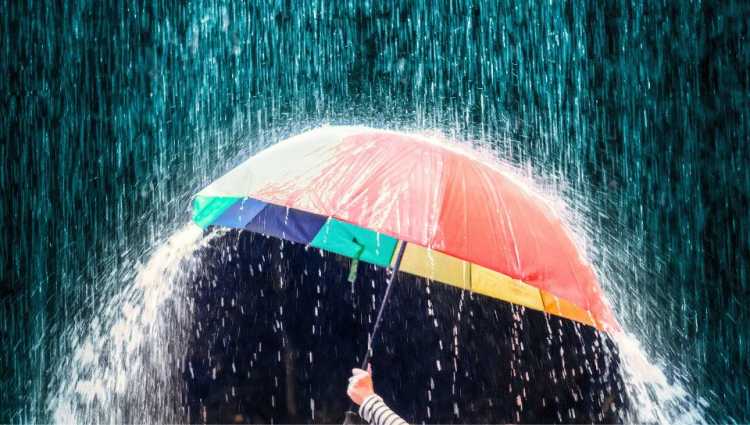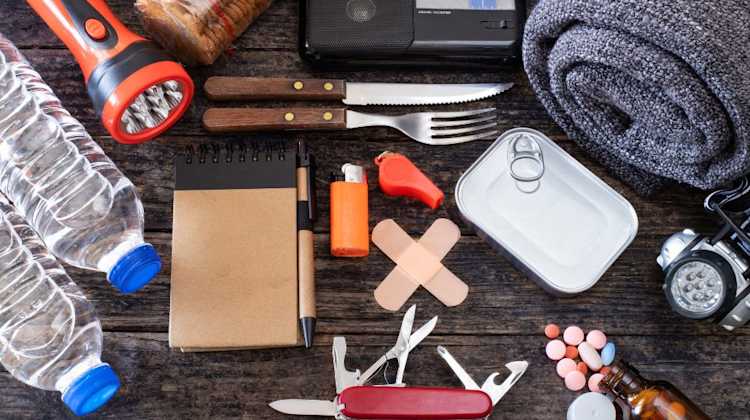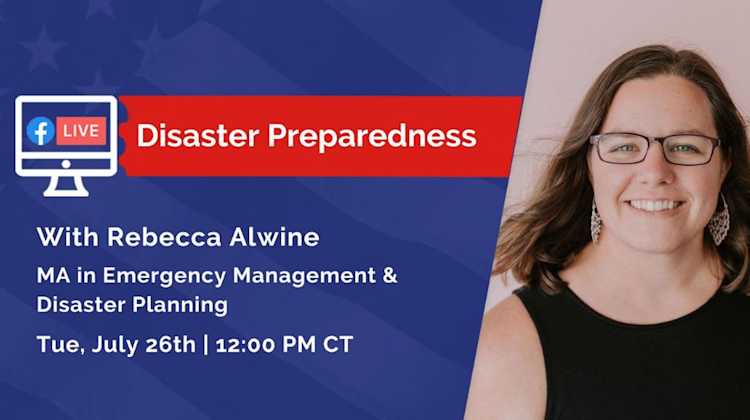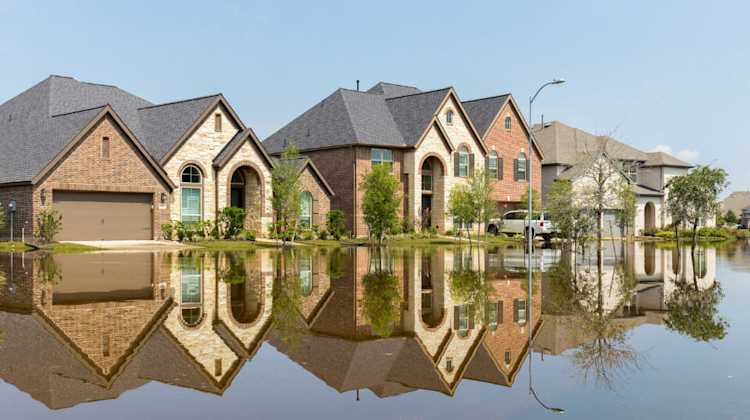Emergency Plans for Military Families Stationed in Hurricane Zones
by Rebecca Alwine - July 14th, 2022

I’m an Army spouse. The Army lives in glorious places like Fort Sill, Oklahoma and Fort Drum, New York. We can do vast miles of nothing or random tornadoes. We can do multiple feet of snow.
So imagine my surprise when my Army family moved to the panhandle of Florida. It's one of those places where you have to pay attention to storms during hurricane season. When you check into the unit, they ask you for your family’s evacuation plan. Where you may run out of bottled water a week before the storm hits because everyone is stocking up.
Let’s talk about what to do if you PCS to one of these areas that is always talked about at the National Hurricane Center--where they name the storms.
Have a plan before a natural disaster strikes
When we checked into this duty station at the beginning of hurricane season, my husband was promptly asked where his family would go in the case of a hurricane. We picked the closest place where we had friends and didn’t think much of it.
Now, as we are facing storm after storm, we’re making more detailed plans. The threat of Hurricane Irma in the fall of 2017 made us realize the importance of following the hurricane tracker and having a plan for our family. Learn how to make an emergency plan at Ready.gov.
There are so many things to consider, and you want to think them through BEFORE the weather reports name the storms. Start with the most important – people. Make sure that you know where each member of your family is and how they will get home, or how you will pick them up.
Food, clothing, and water are the most important part of your emergency planning, and you can stage most of these in advance. You’ll want some gas to get far enough without having to stop (and cash to buy more when the gas stations lose power). Medications, pet food and supplies, and important paperwork should be next on the list.
Before you evacuate, backup your hard drive, make sure you have the fire safe box, and secure any weapons you may have in the house. If you still have room in your vehicle, load up any mementos, photos, or family heirlooms. Remember: Things are replaceable, even the most cherished things. People aren’t.
Do military families need storm insurance?
When you PCS and buy a home, you have to insure it. We all know this. But what does that homeowners insurance cover? What about those of us renting off-base? The bottom line is: it depends. You'll need to ask the questions and get the answers for your specific situation and insurance company.
While most places will not change coverage to include wind and water (this is insurance speak for hurricane damage) if you live in an area where they name their storms, you should get clarification as soon as possible. You will want to know what extra policies you may need if you’re in a flood zone. If you're not a homeowner, you'll have renter's insurance to cover your belongings, but you’ll want to know what, exactly, your renter’s insurance covers. And you’ll need to know what you have to do to claim it.
One useful suggestion would be to take photos of each room, to jar your memory as to what is there so that you can file an insurance claim if needed. My plan – take that last PCS inventory sheet with me, so I know what they moved.
Read our article here with details about insurance when you live somewhere with storms.
Storm vocabulary for emergency preparedness
Sometimes weather forecasters get so wrapped up in the excitement of a big storm they forget we don’t all speak their language. My son heard my husband talking about spaghetti models, and he thought we were discussing dinner! Make sure you know what these terms mean:
Hurricane Watch – indicates conditions are possible, usually issued 48 hours before the first effects are seen/felt, time to start planning
Hurricane Warning – indications conditions are expected, usually issued 36 hours before the first effects are seen/felt, complete preparations and be ready to evacuate if needed.
The same watch and warning labels can be added to any storm, from tornadoes to winter weather.
Hurricane season extends into November, but September is the peak season. The Atlantic Ocean usually sees about ten named storms each year, 6 of which become hurricanes and 2 to 3 of which become major hurricanes (Category 3 or higher).
Does our military family need an evacuation plan?
While the military has complete control over your service member and likely has plans to house you in the event of a mandatory evacuation, you shouldn’t rely on that. Sometimes, military bases wait until the last minute to announce mandatory evacuation orders. And the plans for the service member will not always include the whole family--especially if they are working with aircraft and will relocate with their unit.
I, for one, am prepared to leave my spouse in the capable hands of the Army and evacuate way ahead of him. BLUF: When in doubt, evacuate.







